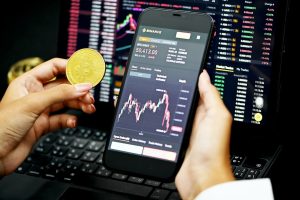Forex, or foreign exchange, is the largest financial market in the world, with an estimated daily turnover of $6.6 trillion. It involves the buying and selling of currencies from around the world, with the goal of making a profit from the fluctuations in exchange rates. But what comes first in forex? The answer is education.
Before diving into the world of forex trading, it’s essential to understand the basics of the market. This includes the mechanics of how currencies are traded, the factors that influence exchange rates, and the different trading strategies that can be employed. Knowledge of the market is crucial for making informed decisions and minimizing the risk of losing money.
One of the first things to learn about forex trading is the terminology. Understanding the jargon used in the market is essential for communicating with other traders and grasping the nuances of trading. Some basic terms to know include:
– Currency pair: The two currencies being traded.
– Bid/ask price: The price at which a trader can sell or buy a currency.
– Spread: The difference between the bid and ask price.
– Pip: The smallest unit of measurement in a currency pair.
– Margin: The collateral required to open a position.
Once familiar with the terminology, it’s important to learn about the different types of analysis used in forex trading. This includes fundamental analysis, which examines economic and political events that may affect currency values, and technical analysis, which uses charts and indicators to identify trends and patterns in the market. Traders often use a combination of these two approaches to make decisions.
Another crucial aspect of forex trading is risk management. This involves setting stop-loss orders, which automatically close a position if the market moves against a trader, and taking profits at predetermined levels. It’s also important to have a solid understanding of leverage, which allows traders to control a larger position with a smaller amount of capital. While leverage can amplify profits, it can also magnify losses, so it’s important to use it responsibly.
Choosing a broker is also an important step in forex trading. Brokers facilitate trades for traders and provide access to trading platforms and tools. It’s important to choose a reputable broker with a good track record and competitive pricing.
In addition to education, discipline and a solid trading plan are also important for success in forex trading. Traders must be able to control their emotions and stick to their plan, even when the market is volatile. This includes setting realistic goals and sticking to a predetermined risk management strategy.
In conclusion, education is the first step in forex trading. Traders must have a solid understanding of the market, including terminology, analysis techniques, risk management, and broker selection. Discipline and a solid trading plan are also crucial for success. While forex trading can be lucrative, it’s important to approach it with caution and a willingness to learn. With the right education and mindset, anyone can become a successful forex trader.





